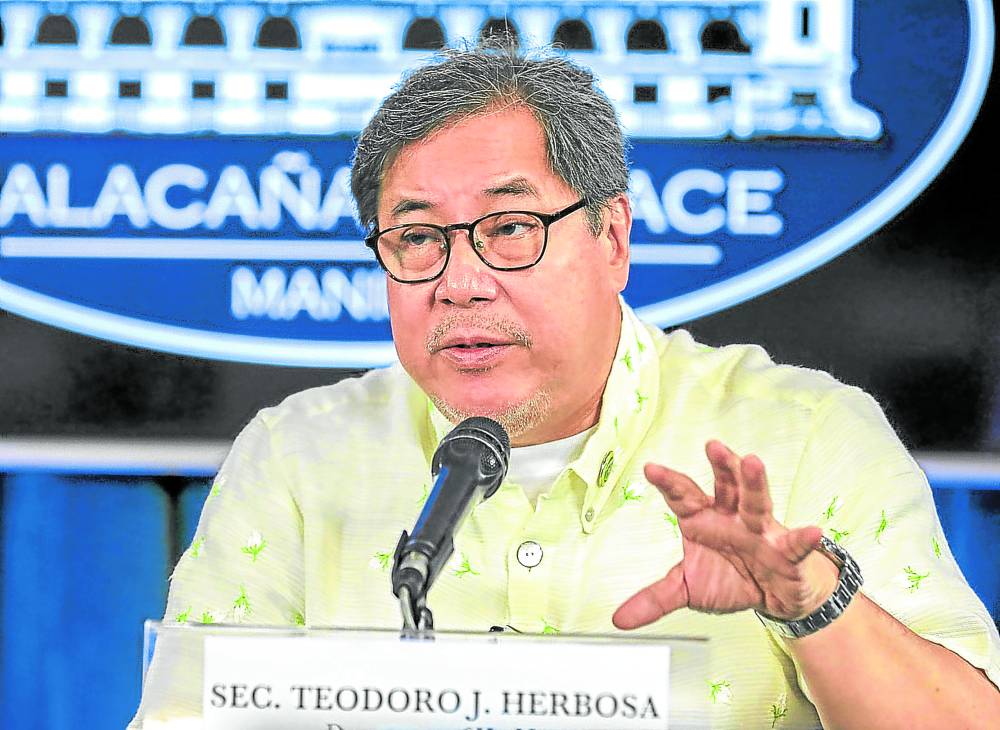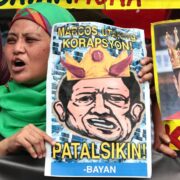Health workers’ lament: Full payout promised in Sona

Health-care workers in both the public and private sectors denounced the further delay of as long as three years for the full release of the government’s obligations totaling P62.9 billion to some two million of them who were exposed to COVID-19 cases during the pandemic.
Ronald Ignacio, spokesperson for the United Private Hospital Unions of the Philippines, said his colleagues were “greatly disappointed” by the timeline given by Health Secretary Teodoro Herbosa during his confirmation hearing at the Commission on Appointments.
Protest at PGH
“That is totally incongruent to the directive of the President that the HEA (health emergency allowance) will be distributed to the health-care workers within this year as pronounced during his Sona (State of the Nation Address) last July,” Ignacio told the Inquirer.
He stressed that the mandated HEA should be paid “now, not in the next three years.”
Members of the Alliance of Health Workers from the Philippine General Hospital (PGH) on Wednesday staged another noontime protest over the issue. Like Ignacio, they also cited the President’s earlier pronouncements, which “until now, [have remained] just pure lies and empty promises.”
According to Karen Faurillo, president of the All UP Workers Union-Manila/PGH, it was “demoralizing and unacceptable” to see health-care workers staging protests again to denounce such “callousness.’’
“These COVID-19 benefits were granted to us in recognition of our heroic and invaluable contribution as we bravely and selfishly risked our lives and health by being at the forefront to respond to the pandemic,” Faurillo said. “Yet again, we are deprived of benefits.”
Based on level of risk
In his second Sona last July, President Marcos vowed to distribute the HEA to make up “for the sacrifices they did during the pandemic.”
Under the law on Public Health Emergency Benefits and Allowances for Health Care Workers, they are entitled to HEAs for every month of service while the country is under a state of public health emergency.
It sets an allowance of P3,000 for those deployed in low-risk areas, P6,000 for those in medium-risk areas and P9,000 for those in high-risk areas.
However, Herbosa said it could take three years, “or shorter, hopefully,” before the government could distribute the arrears in full to the remaining two million health-care workers yet to receive their HEA.
Herbosa, who was confirmed as health secretary on Tuesday, said the timetable could be shortened if tax collection improves.
$450-M loan from ADB
Meanwhile, the government secured a $450-million (P24.89 billion) loan from the Asian Development Bank (ADB) to fund key reforms in the country’s Universal Health Care (UHC) program.
In a statement on Wednesday, the Manila-based ADB said the new loan, known as “Subprogram 2” of its “Build Universal Health Care Program” in the Philippines, carried on the previous support provided to its host country back in November 2021.
The new loan will help strengthen health policy reforms and further improve Filipinos’ access to medicines and health services, as well as sustain UHC coverage and increase financing for the program, it said.
“The program will also help ensure the reforms are responsive to gender-specific health issues and the impacts of climate change on people’s health and well-being,” ADB principal health specialist Eduardo Banzon said.
The UHC program aims to ensure that all Filipinos, regardless of income and financial status, have access to medical treatment by enrolling them in the National Health Insurance Program.
According to ADB, its support for the program helped the government adopt an updated health financing strategy, a national medicine access policy, and the National Health Data Repository framework.
The lender also said the “Green and Safe Health Facilities” scheme has been implemented to ensure public health facilities were disaster-resilient, environmentally sustainable and gender-responsive. —WITH A REPORT FROM IAN NICOLAS P. CIGARAL INQ
















